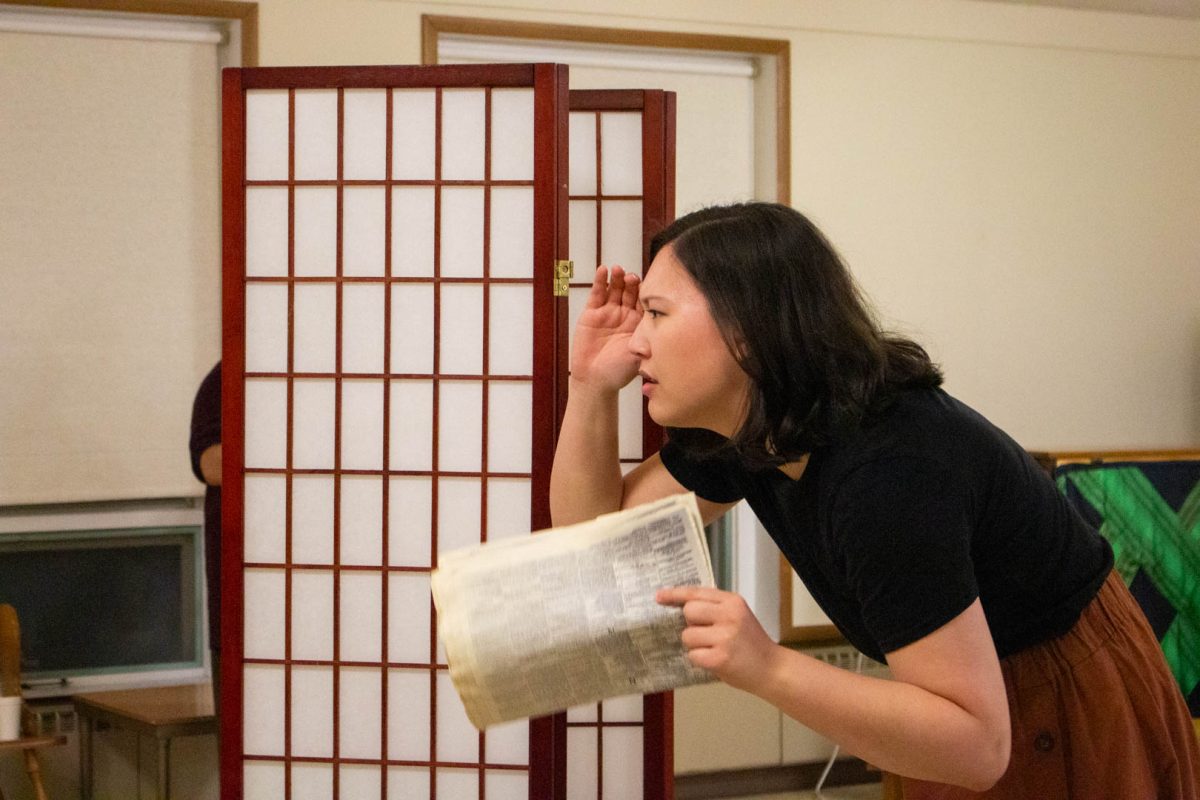One brother has all his faculties but not the mind, the other brother has a mind but not the faculties — at the Bartell Theater, Madison Public Theatre brings the story of two brothers in 1900s Harlem “The Untold Story of the Collyer Brothers” to life this week.
Based on a true story, the drama follows two brothers, Homer and Langley Collyer, in 1930s New York known for their uncommon habits of hoarding and seclusion.
The two brothers decide to seclude themselves from society in their house stacked with over 150 tons of collected items, including 14 pianos protected by booby traps. Soon, societal evasion and exceptional hoarding skills would garner large crowds in front of their house.
The play, written and directed by Finn Gallagher, a board member of the Madison Theater Company, touches on the effect social media and the COVID-19 pandemic had on our lives.
“This wasn’t my initial thought but one of the cast members pointed it out. [The play] spirals out of control,” Gallagher said. “The more they try to seclude themselves, the more interest they gain. It comes down to the self-imposed isolation people had during [the COVID-19 pandemic] and the visibility people have due to social media.”
Gallagher expresses that social media, while serving a purpose, is not a great thing in the end. He points to the play and how social media enhances a particular evil desire people possess.
“[Social media] is not a great thing,” Gallagher said. “The big takeaway is that [the play] is a sinister story of people’s desire to stare and ogle others who are different.”
Another aspect of the play is the idea of free will shown to the audience through the two brothers.
Homer, suffering from hemorrhages, is confined to a wheelchair and has no control over the story, living at the will of the younger brother, Langley, who believes that he as an individual has no control over the things around him.
However, Michael Kelley, one of the cast members who plays young Langley Collyer, points out that the older brother has narrative control though no real control of the events around him.
“He who has control over their lives has no narrative control and the play is happening to him,” Kelley said.
It dislodges the viewer from their perception of events, unveiling the fine line between the truth and the narrated truth. Both brothers undergo the same events but with two different experiences, each believing their narration to be truer than the other’s.
“The Untold Story of the Collyer Brothers” shows the audience that having different opinions does not make one good and the other bad. We go through events with different experiences, shaping our views differently. But this bias is not bad and does not make some emotions and opinions less viable than others.



